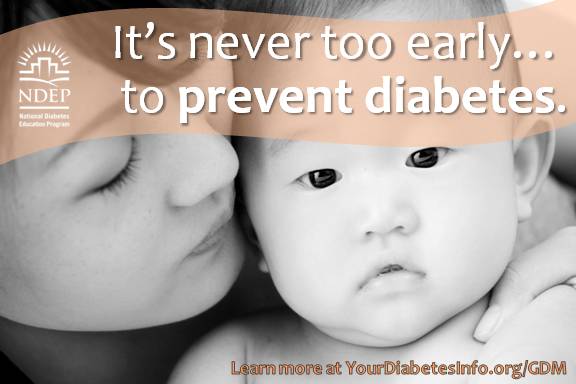Diagnosing and Managing Gestational Diabetes
What is gestational diabetes?
Gestational diabetes is diabetes that is found for the first time when a woman is pregnant. Diabetes means that your blood sugar (also called blood glucose) is too high. Your body uses glucose for energy. But too much glucose in your blood can be harmful. When you are pregnant, too much glucose is not good for your baby.
Often, women with gestational diabetes have no symptoms. However, gestational diabetes may increase your risk of:
- high blood pressure during pregnancy
- having a large baby and needing a cesarean section at delivery
To learn more about managing gestational diabetes during pregnancy, including how gestational diabetes can affect you and your baby, visit diabetes.niddk.nih.gov/dm/pubs/gestational/
What Should a Woman Who Had Gestational Diabetes Do After Her Baby Is Born?
If you had gestational diabetes, you should be tested for diabetes 6 to 12 weeks after your baby is born. If test results show that your blood glucose is higher than normal, but not high enough to be considered diabetes, you should be tested for diabetes every year. If the test is normal, you should get tested for diabetes again in 3 years.
What many women don’t realize is that having a history of gestational diabetes increases their chances of getting diabetes – mostly type 2 -- in the future.
Additionally, the child born from a pregnancy affected by gestational diabetes has a greater chance of being obese and developing type 2 diabetes. Be sure to tell your child’s pediatrician that you had gestational diabetes so the child’s growth and other factors can be monitored accordingly.
Learn more about how to manage these increased risks and keep yourself and your baby healthy.




